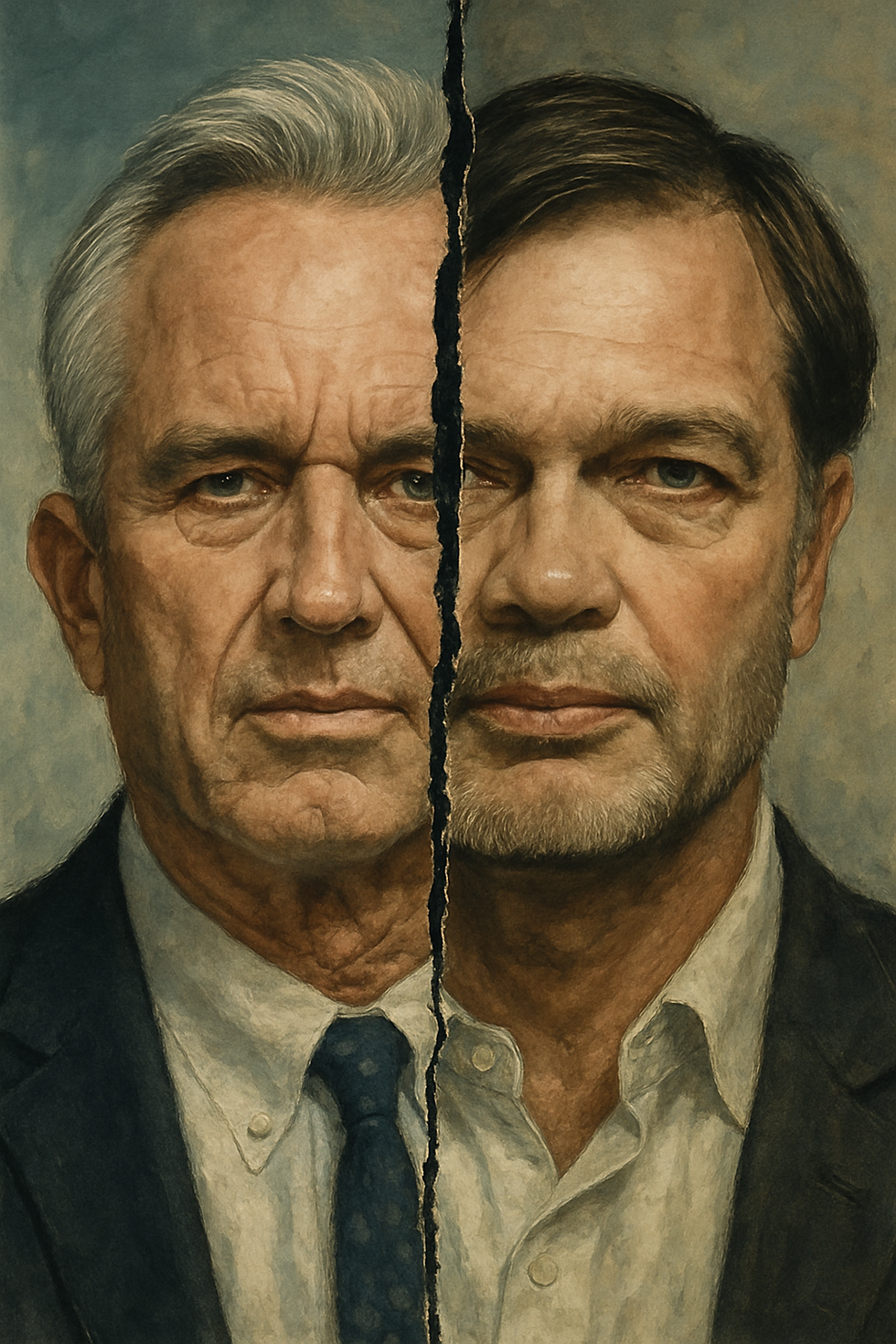The Truth About the “Expert” Study RFK Jr. Is Using to Claim Vaccines Cause Autism
- Tim Aiello, MA, LPC, NCC, ADHD-CCSP, ASDCS

- Apr 27, 2025
- 3 min read
By Tim Aiello, MA, LPC, NCC, ADHD-CCSP, ASDCS

Lately, Robert F. Kennedy Jr. has been making headlines — again — by claiming that vaccines cause autism, using what he describes as “expert research” to back it up.
The problem?
The study he’s citing has not only been thoroughly debunked, but the man behind it — Andrew Wakefield — intentionally falsified the results to push an anti-vaccine agenda.
This wasn’t an honest scientific mistake. It was fraud. And Wakefield paid the price: he lost his medical license in the United Kingdom because of it.
Let’s walk through the real story, because people deserve to know the truth.
The Infamous 1998 Study
In 1998, British physician Andrew Wakefield published a small study in The Lancet claiming a link between the MMR (measles, mumps, rubella) vaccine and autism (Wakefield et al., 1998). It wasn’t a large study — it looked at only 12 children — but it exploded across headlines around the world.
Parents panicked. Vaccination rates dropped. And sadly, preventable diseases like measles started making a comeback.
It didn’t take long for real scientists and medical institutions to realize something wasn’t adding up. Larger, better-designed studies were conducted, and none could replicate Wakefield’s results (Taylor et al., 1999; Madsen et al., 2002; DeStefano et al., 2013).
In fact, over a dozen major studies from multiple countries have consistently found no link between vaccines and autism.
None. Zero.
The Truth Behind the Fraud
Here’s where things get even worse.
In 2004, an investigative journalist named Brian Deer uncovered that Andrew Wakefield had been paid over £400,000 (equivalent to more than $500,000 USD today) by lawyers who were suing vaccine manufacturers. Wakefield’s study wasn’t objective research. It was a hit piece — bought and paid for by people with an anti-vaccine agenda (Deer, 2011).
It also turned out that Wakefield:
Falsified data about the children’s medical histories.
Performed unnecessary and invasive procedures on children without proper ethics approval.
Failed to disclose financial conflicts of interest.
In short: the study was deliberate fraud, not an innocent scientific mistake.
Because of these findings, The Lancet fully retracted the paper in 2010, calling it “utterly false.”
Later that year, the UK’s General Medical Council ruled that Wakefield had acted “dishonestly and irresponsibly,” and revoked his medical license (General Medical Council, 2010).
Wakefield is no longer permitted to practice medicine in the United Kingdom.
Why This Still Matters Today
It’s been more than 25 years, and overwhelming evidence shows no connection between vaccines and autism. Yet RFK Jr. — and others like him — still point to Wakefield’s fraudulent work as “proof.”
When public figures continue to amplify discredited studies, they fuel fear, distrust, and real-world consequences. Measles outbreaks, polio risks, COVID vaccine hesitancy — all of it.
Spreading these claims doesn’t just hurt scientific integrity — it puts vulnerable lives at risk.
Autism is a naturally occurring neurodevelopmental difference, not a vaccine injury.
Continuing to push this debunked narrative stigmatizes autistic individuals and their families, while undermining critical public health initiatives.
In Summary
Andrew Wakefield’s study was fraudulent — he faked data under financial incentive from anti-vaccine lawyers.
Multiple massive studies have since proven that vaccines do not cause autism.
Wakefield lost his medical license because of his dishonesty and unethical behavior.
RFK Jr. is using a thoroughly debunked study to push a harmful, outdated narrative.
Truth matters — especially when lives are on the line.
References
Deer, B. (2011). The Doctor Who Fooled the World: Science, Deception, and the War on Vaccines. Johns Hopkins University Press.
DeStefano, F., Price, C. S., & Weintraub, E. S. (2013). Increasing exposure to antibody-stimulating proteins and polysaccharides in vaccines is not associated with risk of autism. The Journal of Pediatrics, 163(2), 561–567.
General Medical Council. (2010). Fitness to Practise Panel Hearing: Dr. Andrew Wakefield. Retrieved from https://www.gmc-uk.org
Madsen, K. M., et al. (2002). A population-based study of measles, mumps, and rubella vaccination and autism. New England Journal of Medicine, 347(19), 1477-1482.
Taylor, B., Miller, E., Farrington, C. P., et al. (1999). Autism and measles, mumps, and rubella vaccine: No epidemiologic evidence for a causal association. The Lancet, 353(9169), 2026–2029.
Wakefield, A. J., et al. (1998). Ileal-lymphoid-nodular hyperplasia, non-specific colitis, and pervasive developmental disorder in children. The Lancet, 351(9103), 637–641.




Comments